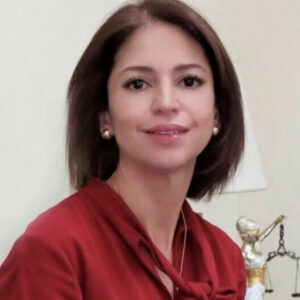In conjunction with International Women’s Day 2021, AFI reached out to women leaders in its network to share their insight on women’s empowerment and the important role women play in financial inclusion. This interview features Presidenta Ethel Deras Enamorado, Comisión Nacional de Bancos y Seguros (CNBS) de Honduras.

AFI: Why is women’s financial inclusion important to you?
Dra. Ethel Deras: Studies show that women’s financial inclusion promotes sound and stable financial systems. Women’s banking habits and behavior are welcomed by the banks as they repay their loans more efficiently compared to men, their transactions are more frequent and they save more. At the macroeconomic level, research suggests that economic growth increases when women have greater access to finance.
Our women’s financial inclusion initiatives are key to economic development, as they seek to enhance opportunities for women and contribute to our national plan targets to reduce the gender gap. Our work also contributes to the Sustainable Development Goal, namely goal five on gender equality, specifically, in the financial sector.
Financial inclusion policies also assist women entrepreneurs to increase productivity and contribute to sustainable economic growth and development.
AFI: What are unique qualities that women leaders can bring to an organization?
Dra. Ethel Deras: Research on leadership has found that supporting women, encourages community participation, increases integration and significantly contributes to the growth of their organizations. Other empirical studies have also suggested that women have a strong relationship-building leadership style.
I strongly believe that women leaders are willing to take risks to achieve innovative results by fostering creativity among their teams.
AFI: What are the biggest opportunities you face in developing and implementing policy and regulation focused on women’s financial inclusion?
Dra. Ethel Deras: Current challenges faced in designing and implementing financial inclusion policies can be viewed as opportunities. One of these is the need to create a baseline and analysis based on solid data allows which would allow for an objective understanding of the gender gap.
We have made progress in identifying sex-disaggregated information and have made some research with women focus groups. As we gradually approach international best practices, we are now measuring our progress alongside our financial inclusion gender gap.
AFI: Why is sex disaggregated data important and why is generating indicators with gender perspectives important for CNBS in measuring progress in women’s financial inclusion?
Dra. Ethel Deras: Our project, Financial Inclusion of Women in Honduras, has set ambitious and challenging goals for our institution. From our supervised sector perspective, the project aims to actively promote and contribute to collection of data and information for inclusive policies with a gender lens. As a financial regulator, we can foster an inclusive ecosystem through a gender lens and data collection can help improve decision-making.
In addition, coordinating efforts with both governments and private actors is fundamental. We are committed to incorporating sex-disaggregated data to tackle the challenges in improving access and usage of financial services with a gender perspective.
We believe that collecting sex-disaggregated data is a great starting point in building business models for financial oversight authorities, especially in financial services that target women. In publishing our sex-disaggregated data, CNBS intends to advance the development of policies and regulations to reduce the existing gender gap.
AFI: What is your message to women in your institution and in our network, across the world, on International Women’s Day, especially during the challenging times of COVID-19 pandemic?
Dra. Ethel Deras: Equality between men and women promotes economic growth and positively affects other areas of development. Improving women’s access to economic opportunities and increasing their productivity can help increase the country’s output and is key to poverty reduction.
We have recognized that women’s financial inclusion, is a necessary requirement for economic development and the pursuit of their goals and dreams. At the same time, improvement of productivity, competitiveness and increased growth translates into the development of our economy at the national level. To make progress, we should review the roles and responsibilities that women have in both the public and private sectors.
AFI’s gender inclusive finance workstream is partially financed by the Swedish International Development Cooperation Agency (Sida) and other partners.

 About
About
 Online
Online
 Data
Data



















